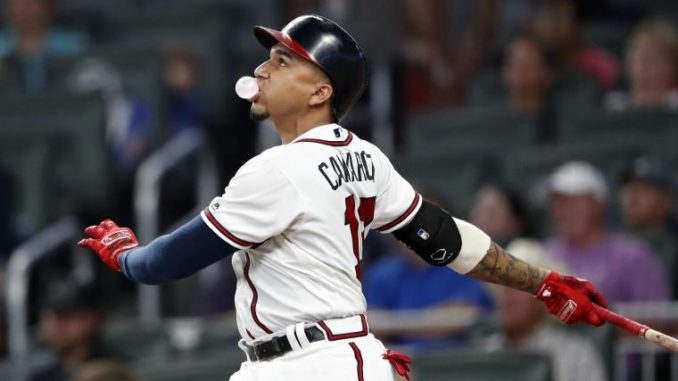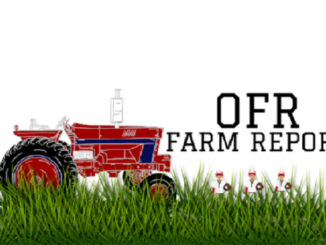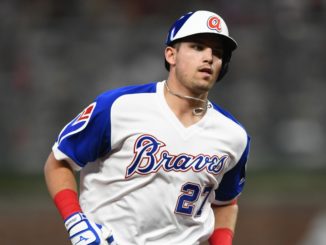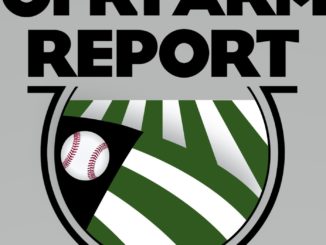
Spring training is just three weeks away, and though there will be acquisitions before (and possibly after) pitchers and catchers report, this series will take a look at the players mostly likely to suit up at each level of the organization. Look for new installments every Monday and Friday until all players officially report on February 17.
In 2019, the Braves gambled on free agent Josh Donaldson, agreeing to a one-year, $23 million contract, the highest single-season salary paid out by Atlanta in franchise history. Donaldson was attempting to rebuild his value following two injury-impaired seasons. The deal worked out for both parties – Donaldson was the third most valuable third baseman in the National League (measured by fWAR) and was a steady producer in the heart of the line-up. Donaldson then capitalized on the performance by getting a lucrative four-year contract from the Minnesota Twins.
While that chain of events worked out for all parties in 2019, in 2020 is does leave the Braves somewhat unsettled at the position.
 ATLANTA BRAVES
ATLANTA BRAVES
STARTER: Johan Camargo
Unless Austin Riley severely outplays him in spring training or the Braves make a move outside the organization to address the position, the smart money for Opening Day has 2018 starter Johan Camargo manning the spot. Camargo handled the position well in 2018, putting up a .272/.349/.457,19 homer season with top-notch defense. When the Braves brought in Donaldson for 2019, it seemed to set up Camargo to be the Braves long-desired super-utility player — a starting caliber multi-position player that would be regularly in the line-up moving around to allow the manager to rest starters, play match-ups, or fill in for injury. The reality however is that Camargo got off to a slow start, Braves manager Brian Snitker stopped using him as a super-utility player, and Camargo never really got on track. When Dansby Swanson got hurt in late July, the team first turned to Camargo to fill the spot. Not only did Camargo continue not to produce at the plate, but his defense at shortstop was simply not up to the task, a sad turn of events for a player who was once considered a top defensive shortstop while coming up through the Braves system. Camargo was eventually displaced both at shortstop and on the 25-man roster by Adeiny Hechavarria, who was picked off waivers. To his credit, Camargo went down to AAA Gwinnett and put solid work in, hitting .481/.531/.690 before being recalled when rosters expanded. Camargo homered as a pinch-hitter in his first game back, then homered again in his first start a week later. Unfortunately Camargo was injured the very next game when he fouled a ball off his shin, causing a hairline fracture from which he would not be able to return.
The team knows what Camargo is capable of and will give him every opportunity to reclaim third this spring. While Riley may be the long-term answer at third, the team apparently would like him to get plenty of time at AAA to smooth out the rough edges, and this could give Camargo time to re-establish himself in the team’s plans.
Back-up: Adeiny Hechavarria would likely get the first look at third if Riley is in AAA to start the season. Charlie Culberson is also a possibility if he makes the club.
 GWINNETT STRIPERS (CLASS AAA)
GWINNETT STRIPERS (CLASS AAA)
STARTER: Austin Riley
For a while in 2020, it looked like the Donaldson 1-year contract plan would work to perfection. Donaldson provided production while the Braves long-time third baseman of the future Austin Riley established himself as a major leaguer, ready to step in at third after the season. After destroying AAA pitching for six weeks, Riley was called to the majors to sub for an injured Ender Inciarte in the outfield. Riley played a solid outfield, but it was his power display at the plate that made him the talk of the major leagues for awhile. In his first 15 games played with Atlanta, Riley hit .356/.397/.746 with 7 home runs, including a home run in his first major league game. A return to earth was inevitable, and by the end of June he was hitting a more reasonable .273/.326/.582, but still homering with regularity, doubling his total to 14. July was miserable however, and he was mired in a 12-for-71 slump when he was placed on the Injured List in early August for a partially torn LCL in his right knee. Riley returned when the rosters expanded in September, but continued his poor production and was not included on the Braves post-season roster.
The question for the Braves is what to make of Riley’s first brush with the majors. Riley’s power will undoubtedly play in the majors, and his ability to play a credible outfield gives the team some options in getting him into the line-up. The main concern however is with Riley’s prolific strikeout rate in his time with Atlanta, 36% overall and an whopping 42% from July 1 forward. Riley will need to get the bat on the ball at least closer to his career minor league strikeout rate 25% to be an effective major leaguer. All through that career, Riley has faced challenges in this area, and has adjusted over time to rise to the level.
Back-up: Yangervis Solarte was recently signed to a minor league contract and would likely be the third baseman to sub for Riley, or start if Riley gets moved up. Sean Kazmar and Riley Unroe could also fill in.
 MISSISSIPPI BRAVES (CLASS AA)
MISSISSIPPI BRAVES (CLASS AA)
STARTER: CJ Alexander
After a 2018 that saw Alexander drafted by Atlanta and rocket through four levels of the minor leagues, the 2019 season started off on a strong foot with an invitation to major league spring training camp. Unfortunately, an elbow injury suffered at some point in camp never got better. Alexander barely got into any Grapefruit League games before being reassigned to the minors. To protect his ailing elbow, Alexander was put at first base for AA Mississippi, but even then mostly DH’d for 11 games before finally deciding to get surgery on the elbow. Alexander returned in mid July with a lengthy rehab stint with the Fire Frogs before heading back to Mississippi. Alexander played 13 games with Mississippi before flipping over a camera well chasing after a foul ball and injuring his wrist and ending his season. In all, Alexander had a painful .117/.245/.180 batting line in 43 total games played between Florida and Mississippi.
It would be hard to find a bigger reversal of fortunes for one player between his first and second professional seasons. In ordinary times, Alexander has shown he can be a hitter with both good on-base skills and light-pole power. Alexander will hope to get a mulligan for his 2019 season and start fresh in this new decade.
Back-up: Minor league Rule 5 draftee Wendell Rijo or long-time farmhand Alejandro Salazar can back-up here.

FLORIDA FIRE FROGS (CLASS A+)
STARTER: Kevin Josephina
There is perhaps no more difficult position to project in the Braves system than third base for the two lower full-season squads. Third base was a rotating cast of characters for Florida in 2019, with Riley Delgado, Drew Lugbauer, Jordan Rodgers, and CJ Alexander all getting significant playing time. Kevin Josephina got the most however with 65 games logged, and unless he is promoted to Mississippi he seems a likely candidate to return. Josephina’s .258/.310/.349, 2 home run batting line doesn’t do much to excite, but he was one of the more consistent hitters on the Fire Frogs miserable squad.
Back-up: In addition to Rodgers, Brett Langhorne could be a returning Fire Frog with experience at third base. Brenden Venter showed some power late for Rome and could factor in at both first and third. There could be a possibility that the instead of promoting Drew Lugbauer to Mississippi, he could stay in Florida to play third, his primary position in college.

ROME BRAVES (CLASS A)
STARTER: Cody Birdsong
Birdsong got the most looks at the position in Danville, so he may get the first crack at the position for Rome. A 32nd-round pick out of Quincy University, Birdsong held down the hot corner defensively while hitting .234/.278/.340. The mostly likely alternative to Birdsong may be 2018 Rome Opening Day starter Darling Florentino if has a strong spring.
Back-up: Garrett Saunders can play all infield positions, but is perhaps best at third base. Ray Hernandez could also factor in here at third as well as first and DH. Incumbent infield reserve Braulio Vasquez is also a possibility.
ROOKIE LEAGUES
Darling Florentino
Florentino was pushed to Rome to start the 2019 season at the age of 17, and while he showed raw power to spare he was also clearly overmatched by the level. A return back to the complex leagues didn’t seem to help however, and he’s got some work to do to get his hit tool to an acceptable level. That said, when he does get it figured out he will be a strong middle-of-the-order presence.
Third Base Depth Chart
- Johan Camargo
- Adeiny Hechavarria
- Charlie Culberson
- Austin Riley
- Yangervis Solarte
- Sean Kazmar
- CJ Alexander
- Wendell Rijo
- Alejandro Salazar
- Kevin Josephina
- Brett Langhorne
- Brenden Venter
- Jordan Rodgers
- Cody Birdsong
- Ray Hernandez
- Garrett Saunders
- Braulio Vasquez
- Darling Florentino
OFR TOP 5 THIRD BASE PROSPECT RANKINGS:
- CJ Alexander
- Drew Lugbauer
- Darling Florentino
- Ray Hernandez
- Cody Birdsong




Leave a Reply